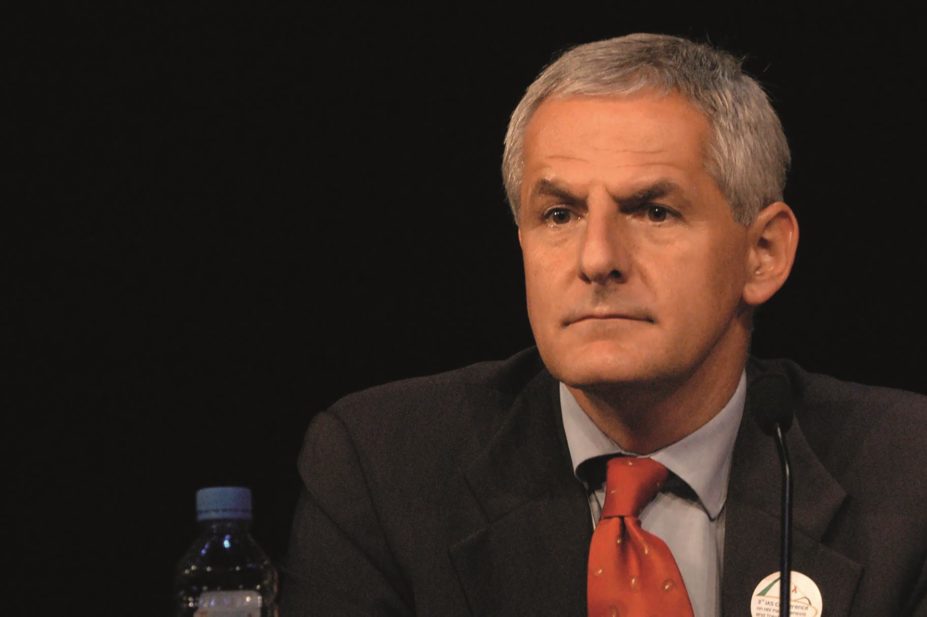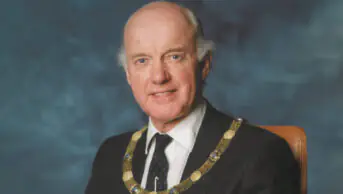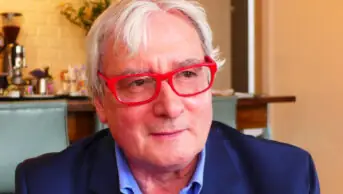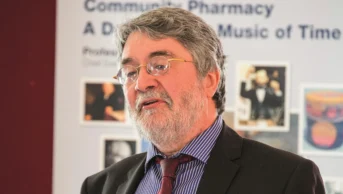
Jean Ayissi / AFP / Getty Images
Joep Lange, the Dutch researcher who died in the crash of the Malaysia Airlines flight MH17 in Ukraine on 17 July 2014, played a key role in the development of antiretroviral therapy for people with AIDS and later became a tireless advocate for improving access to treatment in developing countries.
Lange, aged 59, was on his way to the 20th International AIDS Conference in Melbourne, Australia, with his partner Jacqueline van Tongeren, when the plane was shot down over eastern Ukraine, killing all 298 people on it.
At the time of his death, Lange was professor of medicine at the University of Amsterdam and director of the Amsterdam Institute for Global Health and Development (AIGHD), which he founded in 2009. He had published more than 350 papers and was editor-in-chief and founder of the journal Antiviral Therapy.
Peter Piot, professor of global health at the London School of Hygiene and Tropical Medicine and founding director of UNAIDs, spoke on the Radio 4 programme ‘Last word’ and explained that Lange’s early work looked at the evolution of HIV with the establishment of the Amsterdam Cohort Studies on HIV and AIDS in 1984.
“Joep saw that we needed early treatment with several drugs and all his work was based on that visionary double concept,” he said. “He was one of the first to use azidothymidine (AZT) but he saw that patients developed resistance. He was really the first person to say we are not going to make it with one drug but need multiple drugs, we need three. And he was passionate about access to drugs.”
The prevention of mother-to-child transmission of HIV was another focus of Lange’s work. In 2002, a double-blind, placebo-controlled trial of HIV infected mothers in South Africa, Uganda and Tanzania showed that combination antiretroviral treatments were effective in reducing transmission to babies.[1]
Lange studied medicine at the University of Amsterdam and qualified in 1981. He was involved in research from 1983 and did his PhD in 1987 on serological markers in HIV infection.
If Coca-Cola could be distributed to all parts of Africa, why not AIDS treatment
Peter Reiss, professor of internal medicine at University of Amsterdam, had known Lange since medical school and remembers their days as hospital interns when they met the first Dutch patients with AIDS.
“Joep was determined to get effective treatment for these people and it shaped his career – a crusade until he died,” Reiss said. “Once effective treatment had been established, he believed it was morally and ethically unacceptable that is should not be available to patients everywhere. And he was very determined in finding solutions to problems.”
If Coca-Cola could be distributed to all parts of Africa, why not AIDS treatment, Lange was fond of telling audiences. He was chief of clinical research and drug development at the World Health Organization’s (WHO) Global Programme on AIDS from 1992 to 1995 and president of the International AIDS Society from 2002 to 2004.
He forged links with the pharmaceutical industry, policymakers, national governments and private firms. “When effective triple drug therapy for HIV became available in high income countries in 1996, it vexed me to see how little could be done for Africa,” Lange wrote in a description of his visits to Africa reprinted on the website of the AIGHD.
“Then suddenly, in May 2000, on the eve of the 13th International AIDS Conference in Durban, South Africa, an agreement was announced between five major pharmaceutical companies and UNAIDS. The companies pledged to start providing antiretrovirals at greatly reduced prices for poor countries with a large HIV burden.”
In 2000, he founded PharmAccess Foundation, a not-for-profit organisation based in Amsterdam aimed at improving healthcare in Africa through innovative financing mechanisms and partnerships. In 2001, the foundation established a programme with Heineken to deliver highly active antiretroviral therapy (HAART) to employees in the company’s African breweries. It is now working with Shell on a range of projects in Africa, including a health insurance scheme in Nigeria.
“Joep had a big vision and he pursued it relentlessly, never believing anything was impossible,” Anton Pozniak, HIV service director at Chelsea and Westminster Hospital, London, and treasurer of the International AIDS Society, said. ”He just forged ahead.”
He remembers taking part in a debate with Lange on ′Can AIDS be cured?’ in London about 20 years ago, with Lange arguing for the motion and Pozniak opposing it.
“I won but I hope in the long run Joep is proved right,” said Pozniak.
Joep Lange, born 25 September 1954; died 17 July 2014. He is survived by a son and four daughters from his marriage to Heleen.
References
[1] Efficacy of three short-course regimens of zidovudine and lamivudine in preventing early and late transmission of HIV-1 from mother to child in Tanzania, South Africa, and Uganda (Petra study): a randomised, double-blind, placebo-controlled trial. Lancet. 2002;359:1178–1186.
You may also be interested in

Philip Leon Marshall Davies (1938–2026)

Bill Scott OBE (1949–2025)
